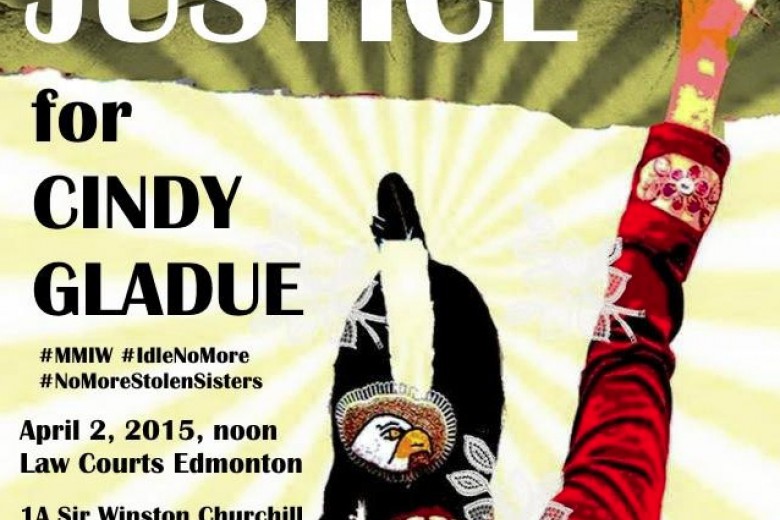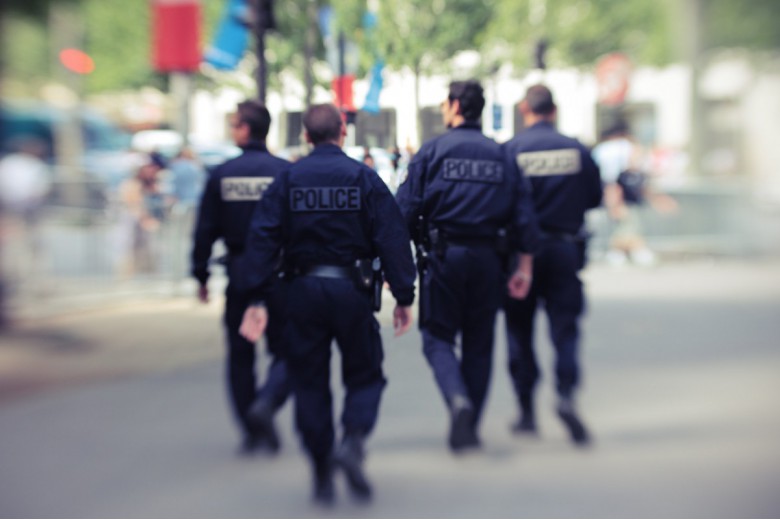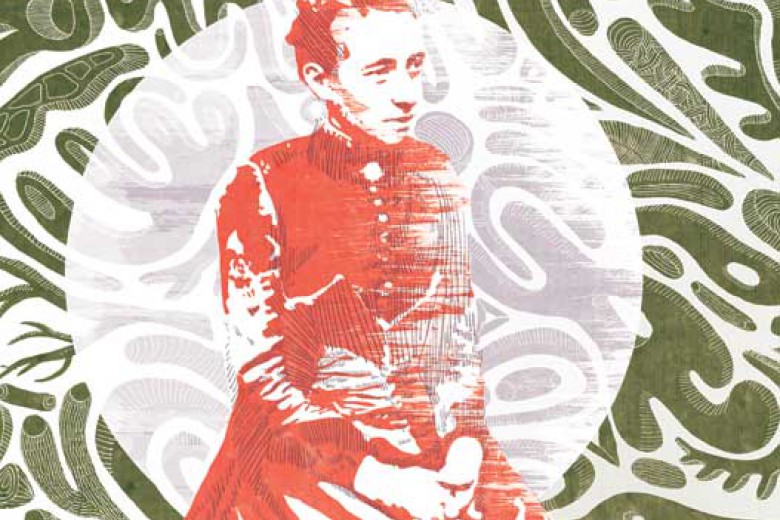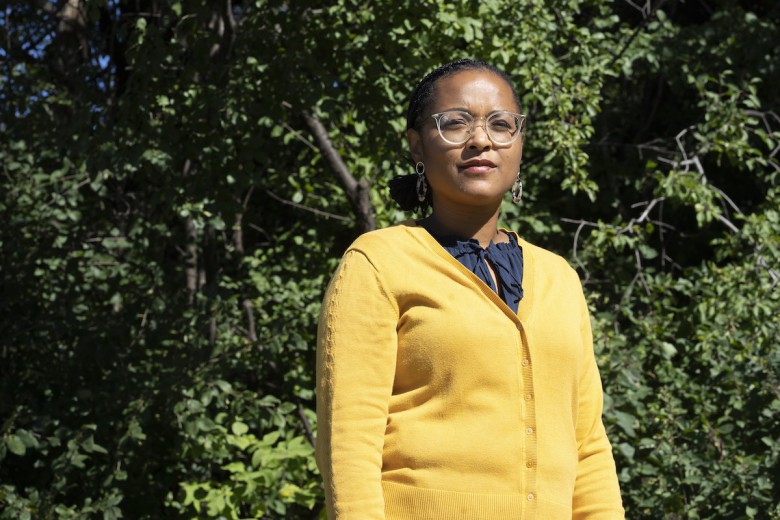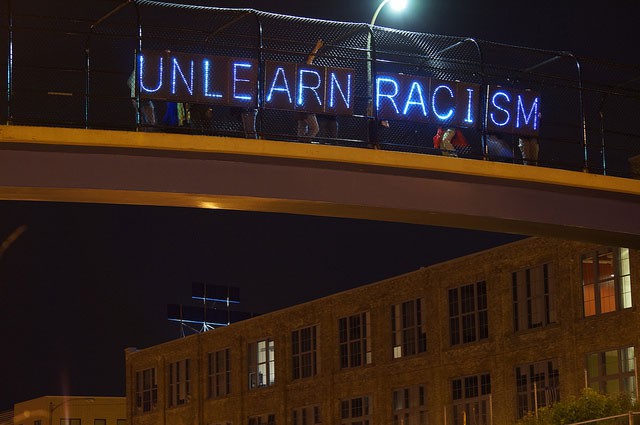
I am in graduate school at an institution that has pegged me as a “first-generation student” because neither of my parents went through post-secondary education. My classrooms are occupied by predominantly white students – which is not surprising, given that many people of colour are still only a few decades, if at all, removed from violence like dispossession and occupation, not to mention constantly negotiating systemic racism in academia.
Several of my classes have brought in the concept of unlearning. Unlearning is the process of recognizing that we have all been imbued with the dictates of the hetero-patriarchal, white, capitalist, colonial systems of privilege we’ve been socialized in; it requires us to challenge and subvert dominant values. One of the most popular areas of unlearning has been around white privilege.
Early on in my studies, unlearning was so alluring and radical to me. Finally, a chance to talk about racism in the classroom. But I have realized that the ways in which unlearning may be taught have created a false universalization of the student-audience. Unlearning overlooks the fact that those of us whose voices, stories, and ways of knowing are not dominant have to shoulder a disproportionate burden of teaching our classmates, and forgiving the collateral damage of everyday bigotry that happens in the name of unlearning.
Post-secondary classrooms and anti-oppression trainings often use staple unlearning scholars. One popular resource is Peggy McIntosh’s “White Privilege: Unpacking the Invisible Knapsack.” McIntosh provides a list of 50 race-based privileges that white people have: access to “flesh”-coloured bandages that more or less blend in with the tone of their skin, the freedom to shop without being suspected of theft, and a given level of credibility to speak on any subject. The piece is widely celebrated for its deft pinpointing of white privilege, from the banal to the life-saving. Similarly, Jane Elliott’s “Blue Eyes/Brown Eyes” exercise is frequently used in elementary classrooms to simulate discrimination by separating people into oppressor and oppressed based on their eye colour. When experiments and texts like McIntosh’s and Elliott’s are centred in the classroom, they reinforce the assumption that whiteness is universal inside the classroom.
The reality is that these approaches to unpacking racism can leave students of colour in classrooms feeling as though the conversation doesn’t include them. Students of colour are rendered invisible; our knowledge and contributions become ghostly matters.
Paradoxically, though, people of colour are simultaneously treated as a free resource-extraction pit. People I have not spoken with in years will find ways to contact me, asking for resources and wanting to “pick my brain.” Responding to these requests means providing free labour that is rarely recognized, that rarely benefits those who provide it, and that does not transform power relations. We are presumed to be free commons. As Audre Lorde writes in “Age, Race, Class, and Sex,” “It is the responsibility of the oppressed to teach the oppressors their mistakes.… Black and Third World people are expected to educate white people as to our humanity. Women are expected to educate men. Lesbians and gay men are expected to educate the heterosexual world. The oppressors maintain their position and evade responsibility for their own actions. There is a constant drain of energy which might be better used in redefining ourselves and devising realistic scenarios for altering the present and constructing the future.”
Unlearning with integrity means understanding the collateral damage of unlearning in common, shared spaces. How do we teach unlearning without assuming that racism happens out there, rather than in the very spaces of unlearning we are trying to change? How can unlearning be a fundamental reorganization of power?
For starters, we need to decentre pedagogy that assumes whiteness. We need to instead build from the work of anti-racist and anti-colonial teachers like Cree and Métis educator Verna St. Denis and Michi Saagiig Nishnaabeg teacher and writer Leanne Betasamosake Simpson, and from books like bell hooks’ Teaching to Transgress, or Brazilian education theorist Paulo Freire’s Pedagogy of the Oppressed, among others. Hiring more teachers from marginalized communities starts to decentre whiteness in the classroom, though this is not enough. Part of the institutional shift is assigning readings by Lorde, Frantz Fanon, Cherríe Moraga, Stuart Hall, and the many others who were and are radically challenging oppression. This is the practice of passing the mic to those who have laboured to publish from a place of knowing about the effects of racism.
Unlearning the practices of unlearning means truly committing to challenging what McIntosh listed, in 1988, as a point of white privilege: “I can easily find academic courses and institutions which give attention only to people of my race.” I’m still waiting for that to be the case.


